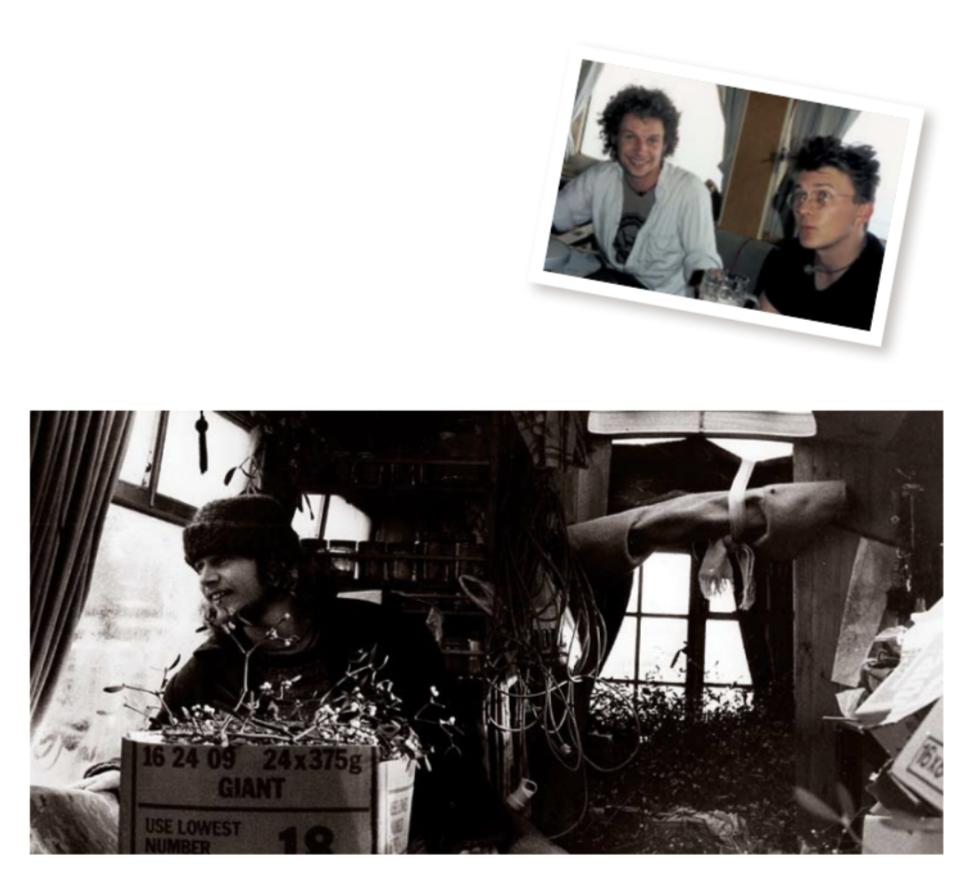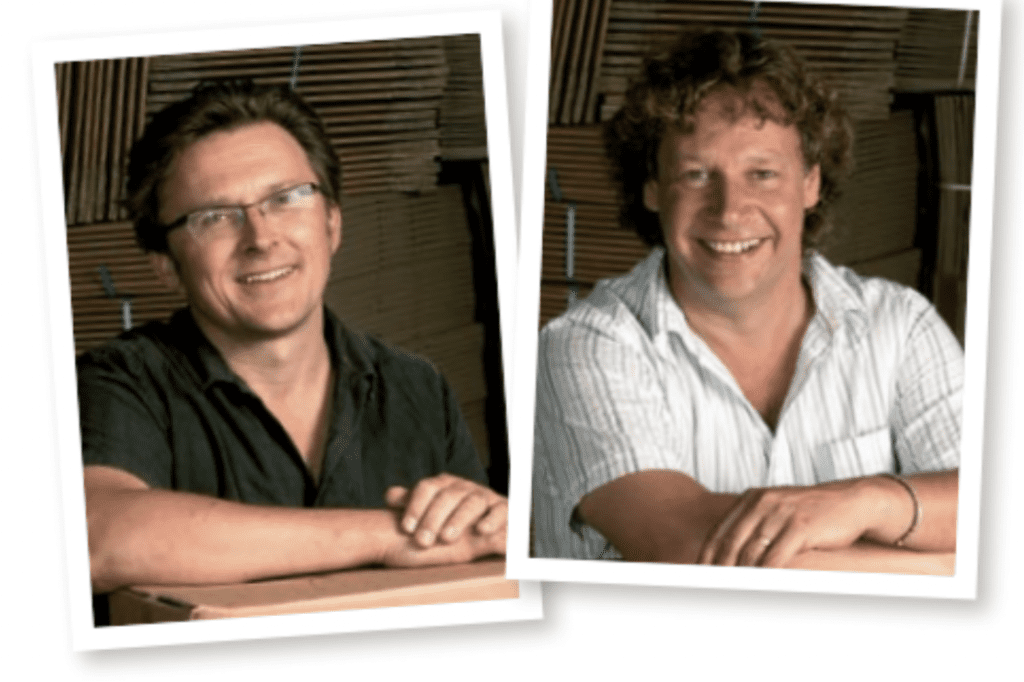Neil Palmer is the Founder and Director of organic wine importer Vintage Roots, which he founded at the age of 26 with his friend Lance Pigott. In this Meet the Friend interview, Amanda Barnes finds out how Neil’s harvesting experiences in his 20s sparked a lifelong passion for wine and reggae.
What got you into wine?
Well, it was Dad who first showed me how to use a corkscrew. He literally was instrumental in sparking my interest in wine. Always encouraging, he helped financially too, lending some money to help me get Vintage Roots started with two friends, back in 1986, on the ‘Enterprise Allowance Scheme’.
Even though he was a keen explorer of good wines, and built up an interesting cellar over the years, including many vintages of Château Palmer, he quickly became one of our top and most loyal customers, leaving much of his old collection to gather dust. He often used to remind me – I started Vintage Roots at the age of 26 – that this was the age that he got to try his very first wine.
Vintage Roots has quite an interesting start up story. Tell us about how you formed the business.
Three friends Pete, Lance and myself were in our mid-20s and had known each other from university and travelling days. In 1983, we set off for France in a friend’s customised bus, with five other ‘fruity’ adventurers. We earned money and had a huge amount of fun picking grapes (vendage) in Bourgueil, in the Loire valley, followed by a couple of pretty miserable weeks picking apples and pears.
On board the bus we had my reggae sound system called ‘Surgery’. We played several gigs in the Tours and Poitiers areas as well as getting on a few local radio shows. Our bus, all painted up yellow and red with wood smoke puffing out the chimney on top and thumping dub reggae pumping out its windows, became quite a sight for the bemused French locals.
It was during this trip that we enjoyed some great hospitality from friends of Pete’s parents – his mother is French. Pierre and Françoise lived in the suburbs of Tours where we were able to park our bus up for some weeks, and enjoy the occasional good meal and possibly more importantly use their hot shower! They were quite alternative types and already into ‘organic living’, belonging to an organic cooperative – they even knew about some organic vineyards, which proved to be very useful later on.
Our reggae version of ‘Summer Holiday’ ended in the run up to Christmas 1983, with one of our first and unsuccessful ventures into business. We saw money in the trees near one of our forest park-ups outside the city, in the form of mistletoe – lots of huge bunches, there for the taking. We proceeded to harvest a LOT of it, practically filling the whole bus in the hope we could sell it around the markets in London in the run up to Christmas and make a killing. Sadly, Customs at Dover got us to take it all off so they could send on the sniffer dogs to look for contraband – no kisses for them!

It was in 1985 after plans to open up a wholefood restaurant in Reading failed that Pete called on that list of organic vineyards that Pierre and Françoise had given him. With Lance and I as willing business partners, with £2,000 each to put into the pot, we travelled to France again with a bag full of reggae tapes and a tent, this time in my old Citroen to research and visit the organic wine producers. We were inspired by what we saw, who we met and what we tasted. Vintage Roots was on its way, the name derived from a version of one of those reggae compilation tapes called ‘Roots in my Boots’. So on 4th November 1986, Vintage Roots was officially born. We were not wine experts or businessmen, but had a yearning to create something for ourselves, and put our energy into something we really believed in. We started on Maggie Thatcher’s ‘Enterprise Allowance Scheme’, which gave budding entrepreneurs £40 a week (equivalent to state benefit at the time) for a year to start a business.
Our first wine list was a single sheet of A4 with 15 wines. We hired a van and drove for three days around France to collect our first 70 cases. With newly printed business cards and an empty order book, we set up office in the front room of our terraced house in east Reading and got on the phone. First orders were for family and friends, week 1 – one case sold, week 2 – three cases, week 3 – no cases. We delivered orders in our own vehicles, taking the opportunity to cold call on any likely outlets that we saw.
From those early days driving around in your Citroen, how has your selection process for finding organic producers changed today?
Yes Lance, Peter – who left Vintage Roots in 1991 – and myself did a few trips in the old Citroen, usually Loire and Bordeaux Bergerac areas. We started with very little and no experience of the wine industry. Camping in the vineyards, or wherever we could was cheap and good fun. Waking up early, we would just have to stumble into the nearest café for strong coffee – what we used to call ‘stand up’ – and eat a croissant or some bread. Visits to producers were inspiring and an education, we were always well looked after. In those days we usually had a list of addresses, but would sometimes be sent off on wild goose chases looking for other supposed organic producers – no phones, no google maps etc. We travelled back with a boot load of samples.
Years later, we found out about a large German organic/natural living fair called ‘Biofach’ that also had organic wines. We went a few times and were amazed how many wines we found, especially on some of the German importers stands – it was like a treasure trove to us. We also visited a similar but much more laid back fair, where they had music, great food and dancing too, in Alsace during those early days called ‘Rouffach’ – we found lots there also.
As time went on and we got busier selling wine, we found that a lot of producers were contacting us, we had less time to travel and do ‘on the ground’ research. The same is true today and as confirmed during Covid, we can reach out via emails and contacts for samples, and receive all that we need via the post/couriers. There are a couple of good wine fairs that focus on organic (and have done for years) that we attend – Milliseme Bio in Montpellier and Prowein.
The tasting team here consists of three people and we always taste all prospective wines blind in batches – then re-taste and discuss looking at each producer carefully for value and range. We compare them sometimes with our existing producers, and sustainability stories – certification for organic and/or biodynamic is the minimum. We know how important it is to provide good quality, and value to our customers, both in trade and mail order.
How much have you seen the interest in organic/biodynamic wine grow in the UK? And do you see any challenges ahead?
The interest has grown overall pretty slowly over 35 years. It’s been quicker in other countries, but has gathered quite a pace in the last three to six years. Biodynamic is still less known and understood, but ‘Natural’ has risen to the surface much quicker, which has confused the offering sometimes!
Regarding challenges ahead – well ‘organic’ has always been our USP, so I remember one wine writer way back in the 90s saying that once all wines became organic we’d be out of a job. We are not there yet, but that would be good! I think the debate these days has moved more towards additional sustainable and environmental measures being taken on top of organic. It’s great to see whole areas and regions taking up more sustainable programmes also.
Certified products must maintain the highest standards, otherwise they will become meaningless. Climate change may affect how easy it is to be organic in certain areas – use of resistant varieties will become more of a common practise, I guess. The use of copper seems to be an ongoing debate also.
Where in the world do you think the organic wine production scene is really booming?
There’s lots going on in France, Italy and Spain. Southern France and Rhone, as well as Spain for value.

